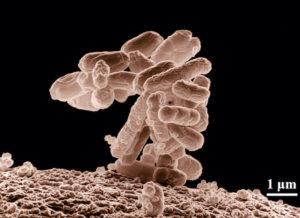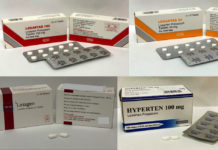
What is Kefir and How is it Different from Yoghurt?
Kefir is a fermented food which is becoming more popular in recent years. It tastes and looks similar to yoghurt. Like Yoghurt, it is often consumed for its probiotic effects. There are differences, however. Kefir is thinner in consistency, and has higher amounts of fat, protein and probiotics. It has yeast in it, unlike yoghurt. It is also made differently – at room temperature, making it very easy to make at home. It has been to shown to have more health benefits, described below. Because of its beneficial effects on humans and animals, kefir is often described as a superfood.
How is It Made?
Kefir is made from kefir grains – a live, symbiotic culture which of bacteria and yeasts in a matrix of proteins lipids and polysaccharides. With the grains, you can make your own kefir using milk. Cow’s milk is most often used, but you can also use goat’s milk, coconut milk. There is also a non-milk version of kefir known as water kefir, but this is slightly different from milk kefir. You can purchase the grains or obtain them from someone who is already making kefir. Alternatively, more and more stores are selling ready-made and flavoured kefir. I personally make my own kefir at home. Here’s how, as shown in the video.
Is it Suitable for Dogs, Cats and People Who are Lactose Intolerant?
Through the process of fermentation, most of the lactose in milk is actually transformed into lactic acid. For this reason, it is largely suitable for people (and cats) who are lactose intolerant (1). Similarly, it is a great health drink for dogs, who are naturally lactose intolerant. It is best to start with low doses then slowly increase, to make sure that you and your pets do not get stomach upsets. For pets, and people who are lactose intolerant, a double fermentation process is recommended to further reduce the amount of lactose in kefir. During the second fermentation, more lactose is being transformed. Furthermore, the yeasts further break down lactose into ethanol and carbon dioxide (yes, kefir contains small amounts of alcohol from 0.2-2%!).

Please consult your doctor before drinking kefir if you are immunocompromised (e.g. AIDS, on chemotherapy, chronic illness), or if you have an auto-immune disease (e.g Lupus).
10 Scientifically Proven Health Benefits of Kefir
You will be surprised at how much research has gone into proving kefir’s health effects. Many things that Kefir is merely healthy for our digestive system, but Its beneficial actions go beyond the gut.
1. Kefir is an Excellent Source of Probiotics
Probiotics are microbial cell preparations or components of microbial cells with a beneficial effect on the health of the host (2). Kefir contains a complex mix of numerous microbial species. These include numerous Lactobacillus bacteria, Lactobacillus kefiri (80% of kefir) which is only found in kefir, Acetobacter aceti, and more than 23 different yeast species (2).
Kefir has is a far more potent source of probiotics than yoghurt, and most other fermented dairy foods. The diverse microbiota of kefir mean that there are many different organisms and metabolic products present in it, which contribute to many of its health benefits (2).
2. Kefir Improves Digestive Health, Including Irritable Bowel Syndrome, Acute Diarrhea and Lactose Intolerance
The probiotics in kefir help balance the bacteria in our digestive tracts, which may be caused by imbalances in the friendly and harmful bacteria in our gut. Kefir can help people with “sensitive stomachs”, also known as irritable bowel syndrome (3), or people suffering from acute diarrhea. Probiotics also help to heal ulcers caused by H.Pylori (4).
Amazingly, kefir has been shown to even improve lactose intolerance (1).

3. Kefir Has Antibacterial Actions
Lactobacillus kefiri, unique to kefir, has been found to have anti-bacterial properties (6). This makes kefir a suitable treatment for illnesses such as acute gastroenteritis (food poisoning).
4. Kefir Helps in Wound Healing
Kefir has been shown to aid healing of wounds. Kefir gel, when applied to a wound, showed enhanced wound healing compared to antibiotic-steroid emulsion (neomycin-clostebol) (7). In another study on rats, kefir was found to aid healing of infected (Pseudomonas) burn wounds, with lower inflammation and better epithelization of the wound (8).
5. Kefir is a Potent Anti-Oxidant
Kefir has significant antimutagenic and antioxidant properties and can help prevent oxidative damage in our bodies (9). A study demonstrated that kefir is a potential antioxidants that interact with a wide range of species directly responsible for oxidative damage. Kefir mops up free radicals, superoxide radicals, and inhibit lipid peroxidation. Therefore, kefirs are potential candidates for the role of useful and natural antioxidant supplements in humans (10).

6. Kefir Has Anti – Cancer Properties
Some of the bioactive compounds of kefir such as polysaccharides and peptides have great potential for inhibition of proliferation and induction of apoptosis in tumor cells. Many studies revealed that kefir acts on different cancers such as colorectal cancer, malignant T lymphocytes, breast cancer and lung carcinoma (11). A study also demonstrated that kefir that specifically inhibits the growth of human breast cancer cells more than yoghurt, and it may be useful in the prevention or treatment of breast cancer (12).
7. Kefir Improves Bone Health and Protects against Osteoporosis
Osteoporosis is a condition which especially affects older women, where the bone mass decreases with structural deterioration of bone tissue, leading to an increased fracture risk.
Oral consumption of kefir for 6 months has been shown to increase serum parathyroid hormone (PTH) significantly. PTH in turn promotes bone remodelling and improves bone mineral density, reversing osteoporosis (13). In addition, kefir was found to improve bone structure directly in animal studies – after 12 weeks of kefir supplementation in osteoporotic rats, there was increased calcium uptake in the dones, increased bone mineral density, bone volume and trabecular thickness (14).
8. Kefir Improves Allergic Illnesses Such as Asthma And Food Allergies, Through Immunomodulation
The immunomodulatory effects of kefir are not limited to the gut. By reducing inflammation and balancing the immunoglobulin E and T- cell ratios, induce shifts in the immune system to suppress unnecessary inflammatory immune responses. This means kefir may improve lung hypersensitivity – found in asthma, and food allergies. Research has shown that that gut microflora plays a role in susceptibility to food allergies and asthma. By increasing healthy bacteria in the gut, kefir plays a role in reducing allergic illnesses (15).
9. Kefir Lowers Cholesterol
Kefir grains are capable of reducing the cholesterol levels of milk through the fermentation process. When consumed, the microbiota such as Lactobacillus plantarum and the polysaccharide Kefiran, have been shown to lower cholesterol by decreasing cholesterol absorption in the small intestines and increasing cholesterol secretion in the liver and bile (15).
10. Kefir Lowers Blood Pressure and May Have Cardio-Protective Effects
Because hypertension is associated with gut bacteria imbalances, probiotics have protective effects on blood pressure. Also, one of the causes of hypertension and heart disease is chronic inflammation. By balancing the gut bacteria and reducing inflammation, kefir helps to lower blood pressure (16). Other mechanisms which kefir work on the heart include – reduction of cardiac hypertrophy, improvement of cardiac contractility and calcium-handling proteins, and reduction in the regulation of the sympathetic activity (17).
How is it Consumed and how Much?
The long list of benefits should be more than enough to convince to you consume kefir on a regular basis, and feed it to your pets as well! You can drink kefir on its own. If you find that too sour, you can drink it as a smoothie, or with cereal. Other creative ways of consuming kefir include – kefir ice cream, baking, and cooking with it. I prefer to have it in a nutritious shake every morning:
For You:
If you have never drank kefir, it is recommended to start slow, particularly if you have lactose intolerance. When first drinking kefir, you make notice some constipation and abdominal cramps for a week or so, as your gut adapts to the live cultures. Start with 3-4 tablespoons a day (45-60ml) then work your way up to the recommended daily dose of 1cup (250ml).
For Dogs:
The recommended dose for dogs is:
Small dogs – 1-3 teaspoons (5 – 15ml) per day
Medium dogs – 1-2 tablespoons (15 – 30ml) per day
Large dogs – 2-4 tablespoons (30 – 60ml) per day
Please introduce kefir SLOWLY. Introduce ¼ the dose for a week, then double the dose every week until the full dose in 3-4 weeks.

For Cats:
The recommended dose for a small to normal sized cat Is 1 teaspoon (5ml) per day.
It is very important to START SLOWLY. Start with 1/8 teaspoon (0.6ml) for 5 days, then double to ¼ teaspoon (1.25ml) for 5 days, followed by ½ teaspoon (2.5ml) for 5 days. If your cat has no problems then continue to increase to ¾ for 1-2 weeks, then the full 1 teaspoon after another 1-2 weeks.

Side effects to kefir are not common, but they can occur. When introducing kefir to your pets, monitor them for signs of gastrointestinal upset, such as bloating, nausea, constipation and loss of appetite. This should be mild, but if become more obvious, please stop the kefir, and consider using lactose free options such as goat’s milk or coconut milk to make the kefir.
References:
- J Am Diet Assoc. 2003 May;103(5):582-7. Kefir improves lactose digestion and tolerance in adults with lactose maldigestion.Hertzler SR,, Clancy SM.
- Front Microbiol. 2015; 6: 1177.Milk kefir: composition, microbial cultures, biological activities, and related products. Maria R. Prado,
- BMC Gastroenterol. 2009 Feb 16;9:15. doi: 10.1186/1471-230X-9-15.A systematic review and meta-analysis: probiotics in the treatment of irritable bowel syndrome. Hoveyda N
- World J Gastrointest Pathophysiol. 2014 Nov 15; 5(4): 384–391.
- Published online 2014 Nov 15.Use of probiotics in the fight against Helicobacter pylori. Paolo Ruggiero
- Biomed Res Int. 2014; 2014: 208974.Safety Characterization and Antimicrobial Properties of Kefir-Isolated Lactobacillus kefiri. Paula Carasi,
- Int J Antimicrob Agents. 2005 May;25(5):404-8. Antimicrobial and healing activity of kefir and kefiran extract. Rodrigues KL
- IJPSR, 2015; Vol. 6(1): 286-293. Evaluation Of Anti-Microbial Activity And Wound Healing Of Kefir. G. Rahimzadeh
- J Agric Food Chem. 2005 Apr 6;53(7):2467-74. Antimutagenic and antioxidant properties of milk-kefir and soymilk-kefir. Liu JR
- Asian-Aust. J. Anim. Sci. 2005. Vol 18, No. 4 : 567-573. Antioxidative Activities of Kefir .Je-Ruei Liu
- Med Oncol. 2017 Sep 27;34(11):183.Kefir: a powerful probiotics with anticancer properties.Sharifi M
- J Med Food. 2007 Sep;10(3):416-22. Kefir extracts suppress in vitro proliferation of estrogen-dependent human breast cancer cells but not normal mammary epithelial cells. Chen C
- PLoS One. 2015 Dec 10;10(12):e0144231. Short-Term Effects of Kefir-Fermented Milk Consumption on Bone Mineral Density and Bone Metabolism in a Randomized Clinical Trial of Osteoporotic Patients. Tu MY
- Osteoporos Int. 2015 Feb;26(2):589-99.Kefir improves bone mass and microarchitecture in an ovariectomized rat model of postmenopausal osteoporosis. Chen HL
- Front Microbiol. 2016; 7: 647.The Microbiota and Health Promoting Characteristics of the Fermented Beverage Kefir. Benjamin C. T. Bourrie,
- J Nutr Biochem. 2020 Mar;77:108318.Kefir ameliorates hypertension via gut-brain mechanisms in spontaneously hypertensive rats.de Almeida Silva M
- J Nutr Biochem. 2019 Apr;66:79-85. Long-term treatment with kefir probiotics ameliorates cardiac function in spontaneously hypertensive rats. Silva-Cutini MA
















